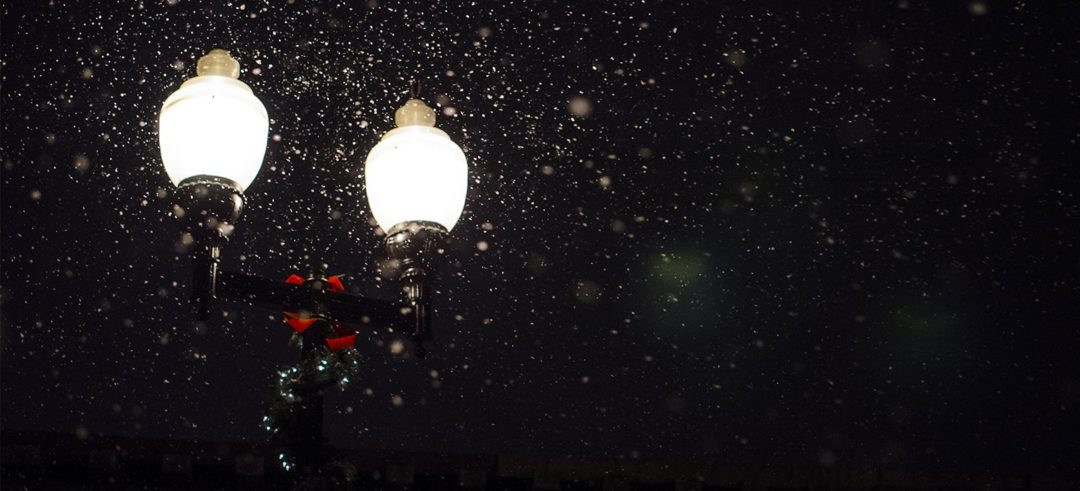Brand Hometown Brands Marketing and Advertising
Ghosts of Advertising’s Past

By \ December 19, 2019
Gloomy days, dark nights, cutting winds and driving snow: the marks of winter. And there, shining like a beacon, is the holiday season. Today, the holiday season lasts from September to December—as decreed by internet giants, chain stores, and the advertising industry.
Traditions change over time, that’s a given. And some live on as mere ghosts of themselves—like telling spooky stories on Christmas Eve. Charles Dickens’ A Christmas Carol is the gold standard, however, far more scarier stories were told before Mr. Claus occupied center stage.
Still, the stars of the show, of all the Christmas stories are the Ghosts of Christmas Past, Present, and Future. (Special note: the Ghost of Christmas Future, often shown in black robes and skeletal hands, scared me good and proper.)
Each of these ghosts gave Ebenezer life saving lessons, and while the Present and Future shades had their strengths, the Ghost of Christmas Past packed quite a punch – there’s nothing more sobering than looking backwards and realizing the chances missed, the mistakes made, and the parade of “what if’s.”
So as we stand at our desks, tap away at our keyboards, and brainstorm new and interesting ways to impress our audiences, we’ll need to take a second and answer those rattling chains at the bedroom door. Who could it be?
The Dark Past
Print advertisements from the late forties to the fifties sold everything from the great taste of Chesterfield cigarettes to kitchen appliances and beer. All vital staples of the post-war decades. However, sifting through these ads with today’s worldview, they appear to be steeped in sexism.
What wife wouldn’t want a brand new refrigerator for Christmas? How could a woman resist the temptations of a man who smoked the right cigarettes, drank the right bourbon, and came home expecting dinner on the table and the kids ready for bed?
And don’t forget the dishwashing soap! It softens hands while you (the wife) did the dishes! Revolutionary!
Thankfully, we’re past those dark days of advertising. Though if you look closely, some of those lessons haven’t been learned.
Pepsi’s disastrous ad that commercialized police brutality protests springs to mind. And of course, the world-famous Peloton commercial not only screams with elitist images and messages, but also sets unfair expectations for women’s health. It’s important to remember that mistakes can still be made, and that advertisers should always lead with empathy and include diverse points-of-view in their concepts.
Positives From the Past
Madison Avenue’s approach may be different from today, but there are several lessons that we can still apply today.
The first: know your audience. Take the time to research who they are and what they want. That wall busting, pitcher-headed Kool-Aid man immediately appealed to kids with his vivacious personality, but also to parents who were looking for an inexpensive alternative to soda and natural juices. Plus, sugar-fueled children could be sent outside to create their own type of mayhem.
Information gathering today is easy and quick – you won’t be waiting weeks or months when using the right tools—the results are virtually instantaneous. Without this knowledge, you’re finished before you start..
Build a brand that resonates emotionally. The Maytag Man, Speedy Alka Seltzer, even Santa Claus—these icons and countless others put a face on the product, and built brands that still resonate today.
Finally, the building blocks of content were established, and are worth noting when writing copy for everything from websites to emails. Headlines are the keystone, so don’t skimp and write strong. The same applies to body copy, don’t get fancy or cute, get to the point. And finally, remember to answer one simple question: Why? Why should your product be purchased? Why will it help the consumer? Why buy now?
Looking Forward
The Ghost of Christmas Past will always be my favorite – looking back greatly enhances your chances of successfully moving forward.
Whether you’re looking back to 1952 or 2019, there are lessons to be learned and things to celebrate.
Take some time this holiday season to do just that. We know we will.